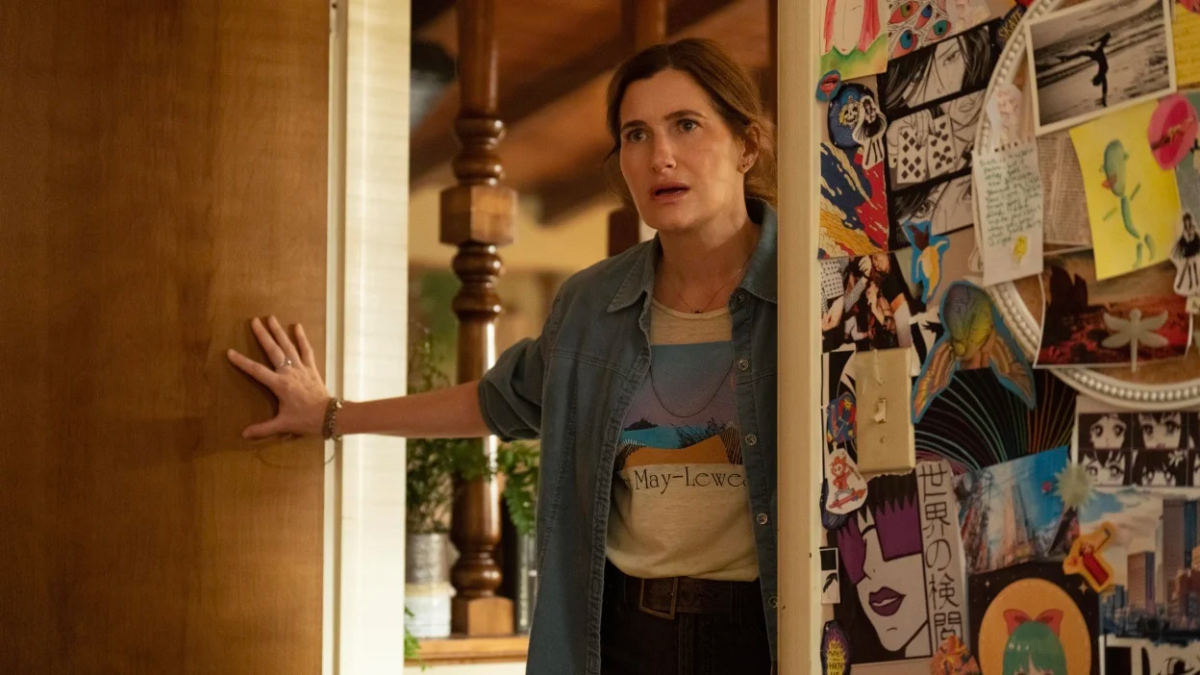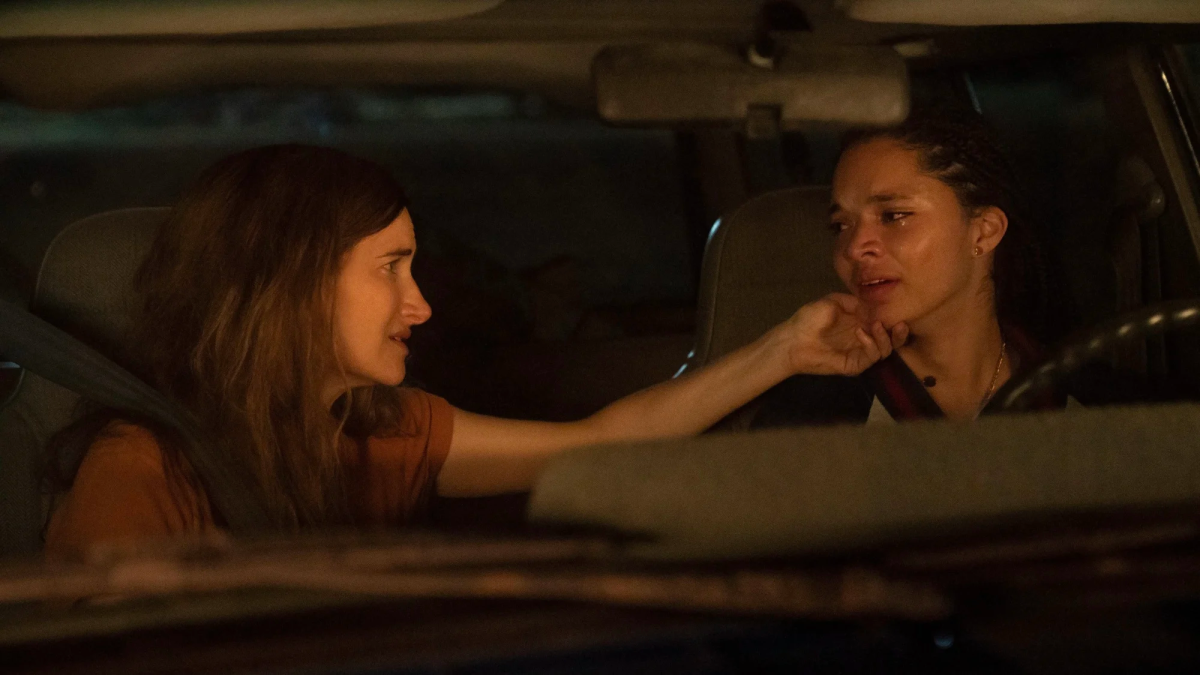Over a century after Henrik Ibsen’s feminist classic A Doll’s House freed its protagonist from the constraints of womanhood, another white male playwright wrote a sequel. Lucas Hnath’s 2017 Tony-nominated A Doll’s House, Part 2 takes place fifteen years after the original and finds Nora’s former maid, husband, and daughter questioning her choice to leave them behind.
Hnath’s play does not specify the race of the characters, but in the Broadway production Nora was played by a white actress, Laurie Metcalf, and Nora’s daughter, Emmy, was played by a Black actress, Condola Rashad. Watching the play in 2017, this casting decision felt pointed. Hillary Clinton had lost the election and even white feminists were starting to question white feminism. But the authorial voice was still Hnath’s — and white male director Sam Gold’s. At a time when so many feminist texts were worthy of reexamination, this critique fell flat.
When the original Broadway cast was replaced, Nora was still played by a white actress but so was Emmy. Nora’s husband was instead played by a Black actor, Stephen McKinley Henderson replacing Chris Cooper. When the play opened in London, Nora was played by a Black actress, Noma Dumezweni. Lucas Hnath wanted to write a play about gender while ignoring race — but each of these casting decisions results in a completely different work. No matter how much Broadway and Hollywood want diversity without engagement, it’s impossible to explore gender without also exploring race.

I thought about this six-year old play as I began watching Hulu’s new adaptation of Cheryl Strayed’s Tiny Beautiful Things, the collection of her popular Dear Sugar advice column. The series follows Kathryn Hahn as Claire, a woman tasked with writing an advice column while her own life is in shambles. The series jumps between the present day, whichever column Claire is working on, and Claire’s past, a narrative that will be familiar if you’ve read or seen Strayed’s other popular autobiographical work, Wild.
Beyond the character’s name, television’s Tiny Beautiful Things takes other liberty’s with Strayed’s life. One of these changes is Claire’s husband, Danny, is Black, and their daughter, Rae, is biracial and queer. Since television is a collaborative medium, changes to expand a story to include other identities and experiences are welcome. The problem with this series is it wants inclusivity without acknowledging how that changes its central narrative.
The show is primarily interested in class, grief, and creative rebirth. It’s at its best in the flashback sequences that focus on young Claire as she deals with challenges beyond her years. Sarah Pidgeon as young Claire simmers with a consistent emotional intensity and Merritt Wever as her mom finds the perfect balance between a tender realism and Claire’s idealized memories. It’s clear in these moments what the show wants to be — and, often, it succeeds.
It’s less successful when tying the trauma of these memories to the present day. During couples therapy, Claire tells Danny that growing up poor had her on an unequal playing field. Danny responds, “I’m a Black man in America. I know people don’t come from an equal playing field.” This line feels merely obligatory, because it is quickly dismissed. Claire says she’s not talking about race, she’s talking about class, and since Danny grew up middle class — “Middle class is rich!” she insists — he simply can’t understand. By showing us Claire’s adolescent challenges and not Danny’s, the show seems to agree with her. That she says this to their Black therapist who she views antagonistically — and who the show has cross ethical boundaries — doesn’t help.
Television is allowed to have imperfect protagonists — in fact, it’s essential — but again and again the show seems to want us to view Claire as the underdog. Yes, she’s imperfect, yes, she fucks up, but, ultimately, we still root for her because the world is against her. Maybe this was true in Cheryl Strayed’s reality, but in the reality we’re shown on-screen that’s just not the case.
It’s not only Claire’s husband and daughter. Throughout the series, Claire is in righteous conflict with several people of color. She is put on leave at work because an Asian patient’s daughter questions her boundaries. She screams at her daughter’s Latina crush about being rich and spoiled. She feels dismissed by a Black friend of a friend, a Black employee at a writers workshop, and a Black doctor with bad bedside manner. And, most notably, a Black professor is the reason young Claire is unable to graduate from college while mourning her mother. She shouts at him for making them only read male authors — a moment meant to show her feminist spirit that falls flat due to race.

There is a version of this show where Claire’s victim complex is the point, but the only time her attitude is questioned in a way that’s at all meaningful is in her relationship to her white writer friend played by Michaela Watkins. When her daughter, Rae, cites white feminism, it’s only framed as a teenage overreaction.
The issue is not inherently with the casting. This series is created by Liz Tigelaar whose previous adaptation Little Fires Everywhere was exceptional, in part, because it expanded its narrative to go beyond whiteness or racial ambiguity. But while that show was precise in its casting and in its writing of characters of color, Tiny Beautiful Things is vague. It feels trapped between its source material and the desire to expand beyond its protagonist’s worldview.
The show finds a similar challenge in its approach to queerness. While Rae’s queerness is established early in the series, it’s not until the sixth episode where we get a real moment between Rae and her crush. It’s one of the few times Rae is given substantial screen time separate from her mother and queer actress Tanzyn Crawford proves she was worthy of more. Working with only minimal material, she shines, and her performance is a big reason the later episodes land better than the rest — even as they hint at the potential for a better show overall. I’d be more forgiving toward details like jokes about lesbians needing short nails and a casually transphobic Dear Sugar letter, if Rae was given more autonomy in the first half of the series.
I wouldn’t take the time to make these critiques if the show didn’t have so much potential. There are many good moments in its exploration of grief and the ripple effects of our lives. This is an exceptionally well-directed, well-acted, and well-edited show. It improves throughout its eight episodes and the finale is particularly strong. It’s just that its strengths make its weaknesses all the more frustrating.
Conversations about women’s roles in society have come a long way since Ibsen’s 1879 play. In fact, they’ve come a long way since Cheryl Strayed’s 2012 book. But if we’re going to continue to evolve in our narratives, we have to go beyond surface level inclusion. It’s better to exclude experiences from a narrative than to include them thoughtlessly. It’s better to be precise in casting, precise in writing, than to just check boxes.
Not every story will encompass every experience, but as our world gets more inclusive, our stories should too. The challenge for Hollywood, for Broadway, is to do that meaningfully. The reward will be better art. And that is a not-so-tiny, beautiful thing.



This is a brilliant review. Thank you.
Such a good review, thank you Drew! I binged it and enjoyed it but your critiques are completely spot on.
I hope there’s a second season, because I feel like there were many Chekhov’s Guns left lying around. They never explored how Claire and Danny met at a bar, or why they broke up the first time, for example. The decade gap between her mom dying and then having Frankie Rae at age 33 is largely unexplored. I hope season 2 perhaps takes Danny’s POV, or at least explores him more. I don’t often care about straight dudes in TV shows, but I felt like there was a chunk missing in Claire’s story by not going into Danny’s.
It is an utter delight to see a Drew review on rotten tomatoes I’ll tell you what